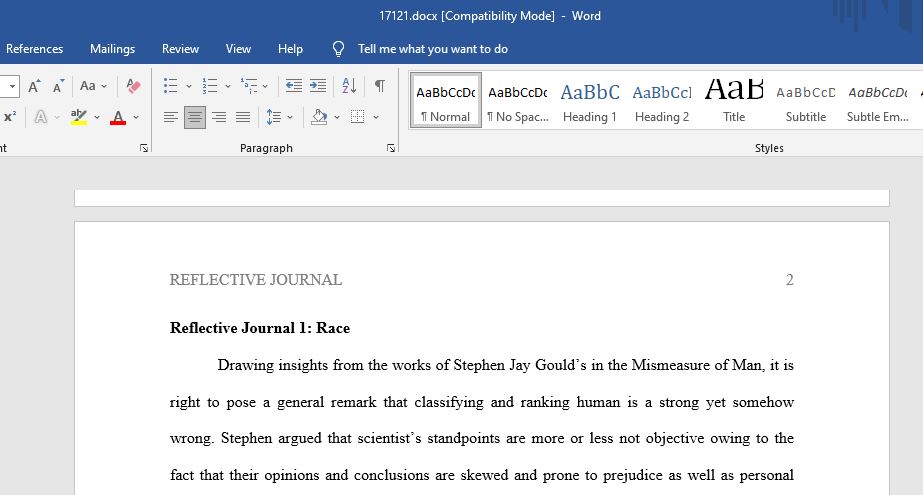Reflective Journal 1: Race
SCH1101: Reflective Journal topics, Semester 2, 2017
Reflective Journal 1
The following quote summarises Stephen Jay Gould’s view of the consequences of race
[or biodeterminism].
‘We pass through this life but once
Few tragedies can be more extensive than the stunting of life
Few injustices deeper than the denial of an opportunity to strive or even to hope,
By a limit imposed from without, but falsely identified as lying within’
Gould, S.J. 1981. The Mismeasure of Man [W.W Norton New York].
Write a reflective account of your own understanding of ‘race’, and discuss whether or not
you think the concept of race has any validity or value.
Reflective Journal 2
One definition of national culture is:
The set of norms, behaviors, beliefs and customs that exist within the population of a sovereign nation.
http://www.businessdictionary.com/definition/national-culture.html#ixzz3jciqSPmu
Reflect on whether or not you think Australia has a national culture.
Reflective Journal 3
The Human Development Index [HDI] includes a measure of a country’s living standards [including income], life expectancy, levels of education and so on.
Australia performs well with respect to the above criteria, and is currently ranked at number 2 out of almost 190 countries [Norway is number 1].
Despite this, the life expectancy of Aboriginal Australians is at least 10 years lower than that of their non-Aboriginal counterparts, and is one of the lowest life expectancies of Indigenous nations around the world.
Reflect on the role that the colonisation of Australia has played, and continues to play, in the discrepancies between Aboriginal and non-Aboriginal Australians.
Sources:
Australian Bureau of Statistics [2013]
United Nations report, State of the World’s Indigenous Peoples [2009]
2014 Human Development Report, United Nations Development Programme
Reflective Journal 4
Across the world, various cultures have adopted a range of health models with different health beliefs and attitudes.
Despite this variation, many cultures share in common a negative attitude and approach to mental illness and mental ill health.
Reflect on why this might be the case.
Answer preview:
Word: 2,350

